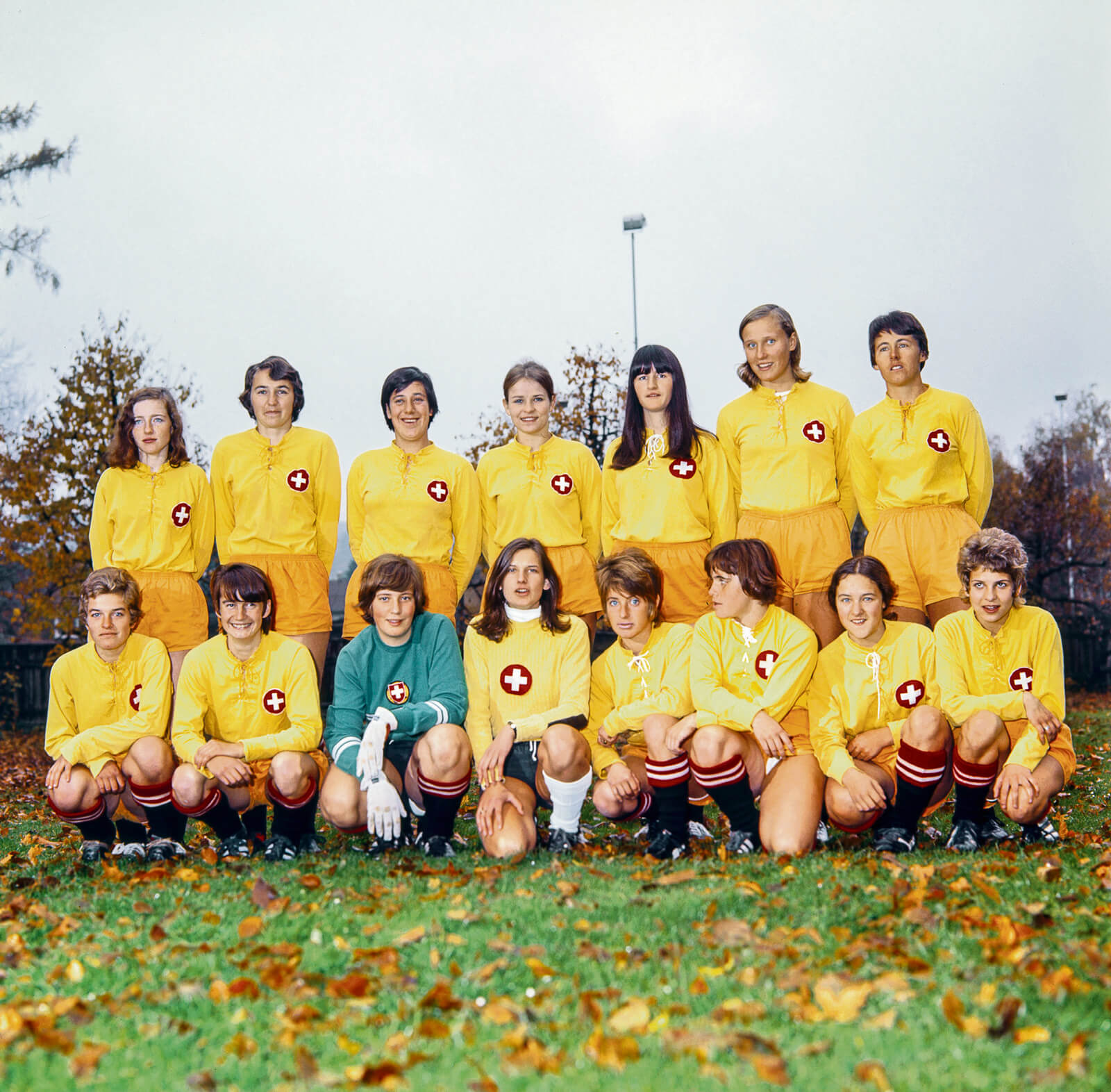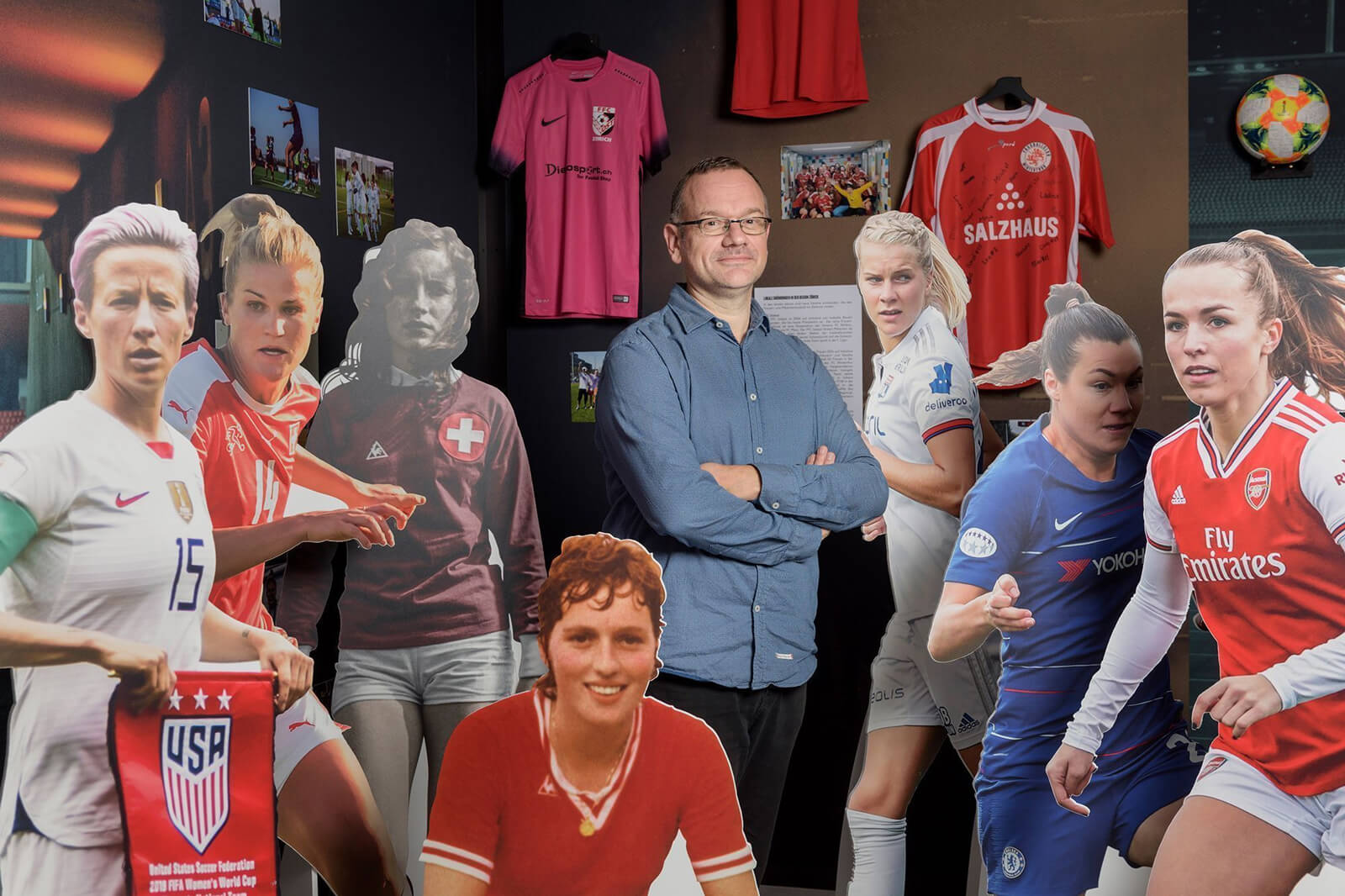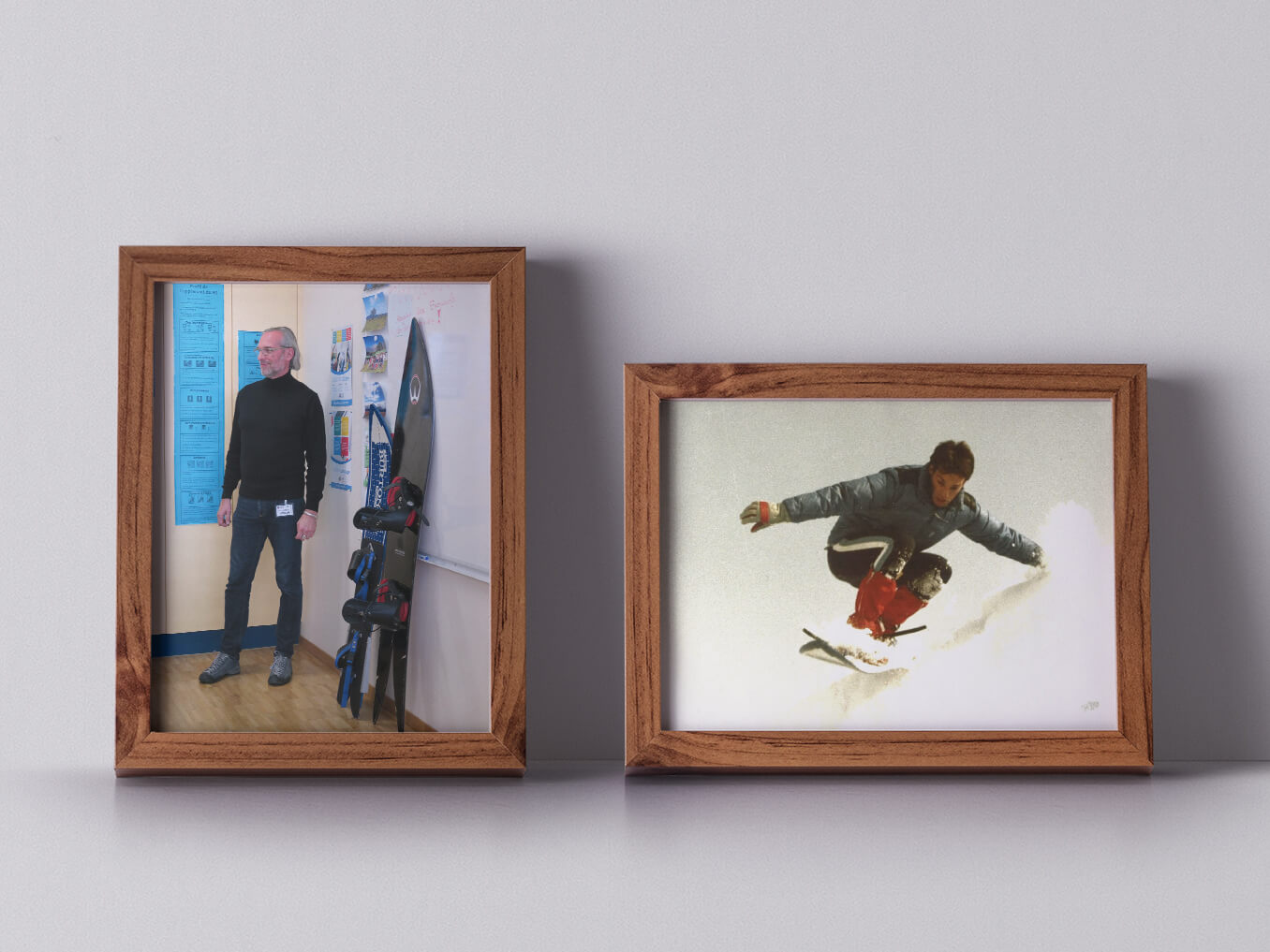Do you recall what year Roger Federer won his first Grand Slam tournament? Likely you do.
But are you also aware that until the 1960s, Swiss women had to fight for a soccer league of their own? And still today, female soccer players are faced with remarks such as “Isn’t soccer for guys?”
Here is the Swiss women’s soccer team at their first international game in 1970:

When looking at the history of sports in Switzerland, other pertinent questions arise: how did the first generation of snowboarders deal with adversity? And why is homosexuality still taboo - especially in sports?
The history of sports is not only about victories and defeats. It is also a mirror of current topics, such as gender roles, origin, and societal class. In short, sports history is an ideal vehicle for discussing the important issues of our time.
Introducing Swiss Sports History
I was stoked to discover an entire platform dedicated to sports history, aptly named Swiss Sports History. This digital portal conveys all kinds of interesting anecdotes and stories related to sports in Switzerland. Its mission is the preservation and research of this vital aspect of Swiss culture.
Their website serves as a clearinghouse for sports-related content. The Instagram profile is a refreshing time tunnel into the past. And finally, witnesses of their time are engaged with schools and hobby clubs across Switzerland.
For Michael Jucker, historian and project manager of Swiss Sports History, working with digital tools and contemporary witnesses is a major strength of the portal: "For many people, history often seems dry and not very experiential. This is exactly where this project comes in: you get to experience history digitally in a playful and structured way.”

Currently, the platform explores themes of integration and exclusion in sports. This is very much a topic the younger generation deals with on a daily basis. Jucker: “Naturally, witnesses of history have an authentic way of talking about exclusion and successes in sports. They tell our audiences firsthand how things used to be; history comes to life.”
Meet Bernhard Kobel, a Swiss snowboarding legend
One of these firsthand witnesses is Bernhard Kobel, one of the first snowboarders in Switzerland. Back in the 1980s, he was facing lots of pushback: “Under the pretense that my snowboard would destroy the slopes, I was often prevented from using ski lifts. This was especially true in larger and more popular resorts such as Mürren or Grindelwald. Today, this would be unthinkable as snowboards have arrived in the mainstream.”
Kobel continues: “My own experience shows that it always takes some time for innovations to be accepted. At first, I was allowed to snowboard at a small ski lift in the Emmental. And later, the Swiss ski association formally recognized snowboarding as a sport. Incidentally, the pioneers of today’s popular sports had to live with similar resistance - be they soccer players or cyclists."

In addition to Bernhard Kobel, Swiss Sports History was able to win over other well-known Swiss sports personalities as contemporary witnesses.
The following personalities have also committed to making Swiss sports history known among the public: Sarah Akanji, the founder of FC Winterthur Frauen who is also a historian and politician; Denise Biellmann, a multiple world champion in figure skating; Lucas Fischer, a successful gymnast, entertainer, and singer; Kariem Hussein, a top light athlete, and Fabienne Peter, an ice hockey player and the first transwoman in Swiss ice hockey.
More information about Swiss Sports History
So far, the portal was financed by the Swiss National Science Foundation and the Gebert Rüf Foundation. They are now looking for new donors and active support, so why not support Swiss Sports History with a donation?


Add comment